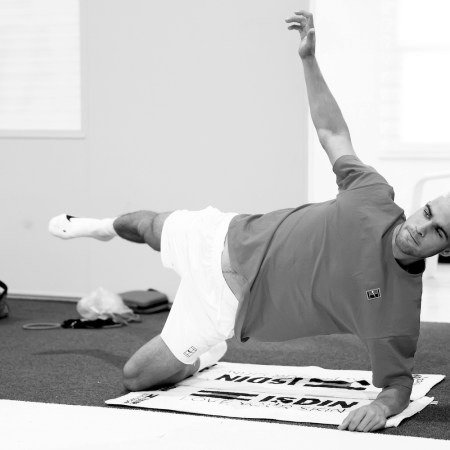In an appearance on The Rich Roll Podcast, a show about the pursuit of healthier, happier life (hosted by an ultrarunner of the same name), longevity expert Dan Buettner stressed how crucial social connections are for fostering a lengthy lifespan. In “Blue Zone” communities — which are five regions Buettner has identified with an abnormal rate of centenarians — communication and contact is effortless and expected.
He explains how people in places like Sardinia, Icaria or Okinawa see each other every single day — at the market, in the square, on the roofs of each other’s homes. If you were to hypothetically sequester yourself and guzzle a day’s worth of Netflix, as we’re wont to do in the States, it wouldn’t be a few hours before someone was knocking at your door, wondering where the hell you’ve been.
The lesson in all this? It’s easier to live longer when you feel needed, when your day-to-day purpose is tied to something larger than yourself, and crucially (for those walking on wobbly knees) when that community is located just outside your door.
Beyond even that, though, there are specific interactions that occur within this sort of framework, which confer specific mental health benefits. Namely: the intergenerational ones. It is really healthy for old people to mingle with young people, and particularly with the youngest society has to offer.
A recent article in The New York Times profiles the rise of so-called “baby workers” in Japan, a country that has the oldest population in the world (with an average national life expectancy of 84.3 years) and also happens to revere its elders — every third Monday in September, the country celebrates Keiro No Hi, which translates to “Respect for the Aged Day.”
That link is no coincidence. Japan doesn’t abandon its old folks. Instead, finds offbeat methods to keep them engaged and spirited, and especially once they’ve been moved to nursing homes, where depression rates skyrocket among resident, which tends to accelerate aging.
The baby workers solution is the country at its most cute and creative; at the Ichoan Nursing Home in Kitakyushu, tiny “employees” from two-months-old to the age of four spend a couple hours of time, every couple weeks, with the site’s lonely octogenarians. They waddle around, make friends and offer hugs in exchange for “free diapers, baby formula, baby photo shoots and coupons for a nearby cafe.” (Presumably redeemed by their guardians.) One resident told the Times: “They are just so cute, and they make the whole place brighter. Young energy is different.”
Many of the nursing home residents have grandchildren (or great-grandchildren) of their own, but they only get to see them so often. Impromptu visits from brand-new babies ensure that they don’t have to wait for scheduled morsels of contact, which, admittedly, can be cancelled whenever life gets in the way: a long day at school, bad weather, a sore throat that won’t go away.
The science is sound — as the Times notes, “studies have linked social interaction with less loneliness, delayed mental decline, lower blood pressure and reduced risk of disease and death among older people” — but the effect is obvious. Older people smile more when met with the most innocent and harmless of guests. Getting to hold a baby is good for the soul, no matter how old you are, but at an advanced age, it can change your entire week.
It’s somewhat unfair to compare American communities to those of Blue Zones. Communities are more sprawling in the States, often making car travel a necessity; family trees are more spread out, as offspring pursue education or careers in other cities; and for better or worse, the Old World charm of knowing one’s neighbors has disappeared.
None of the above is great news for senior citizens in our country. That said, the program Kitakyushu is a fantastic model that could enrich the lives of aging Americans. The United States nursing home population will reach astronomical levels by 2025; whether that’s right or wrong is now a moot point.
Why not adopt and encourage the practice of bringing little ones to nursing home residents? It’s a beneficial arrangement for both sides. Few guardians would turn down the prospect of free supplies. Plus: it’s helpful for tots not yet in school to gain exposure to other faces. Let’s meet our oldest where they are. And do so with the cutest we’ve got.
The Charge will help you move better, think clearer and stay in the game longer. Subscribe to our wellness newsletter today.


















